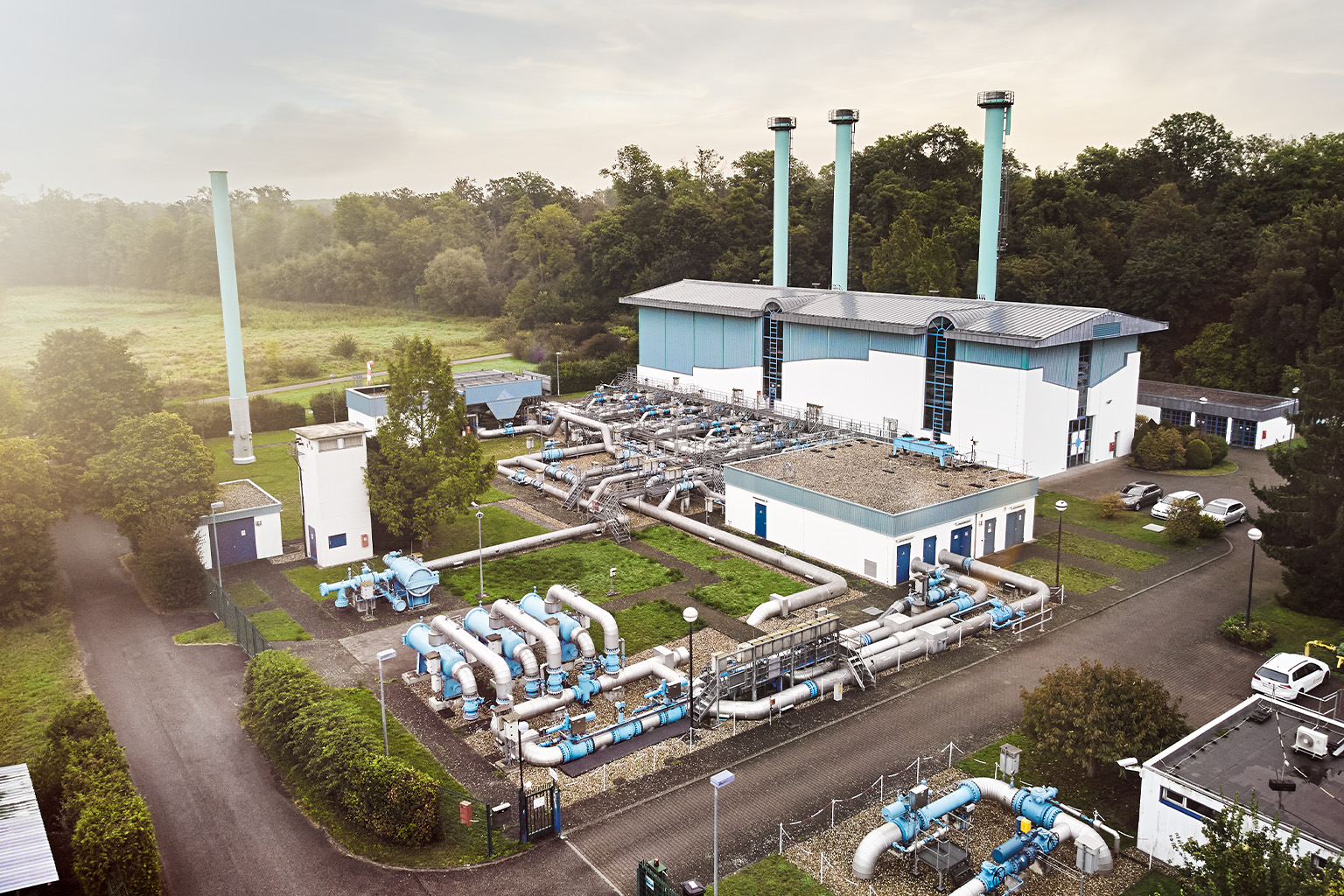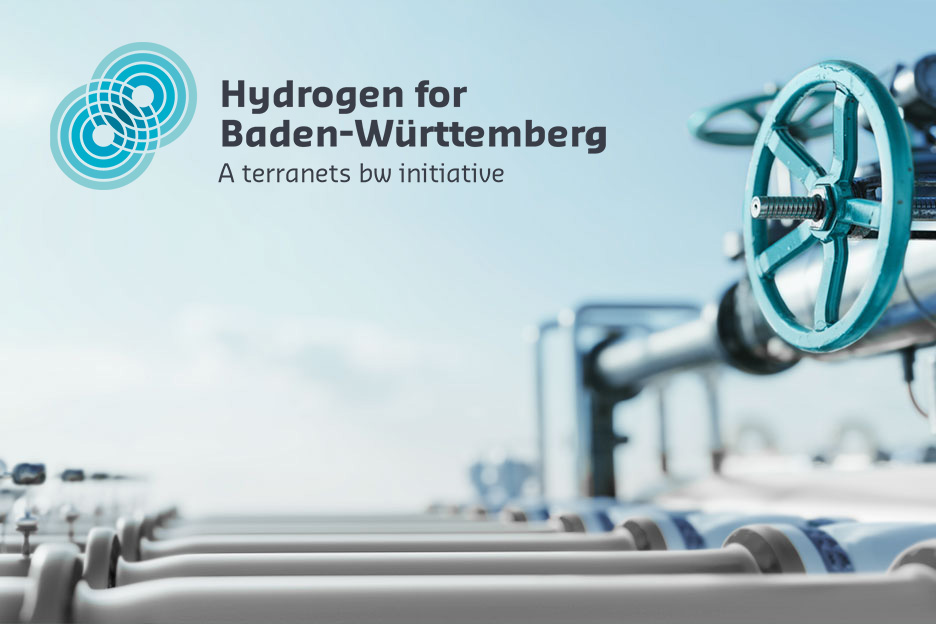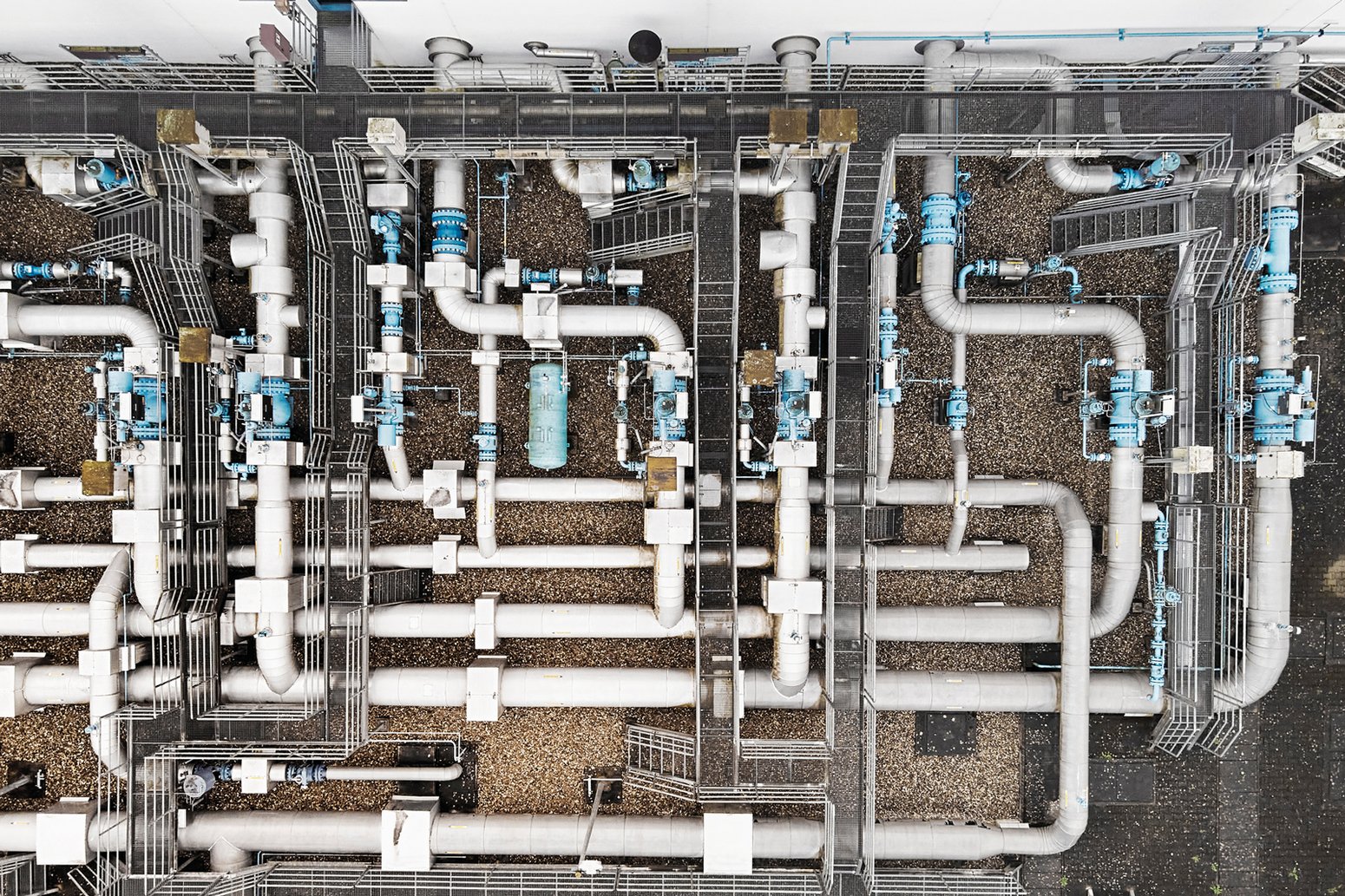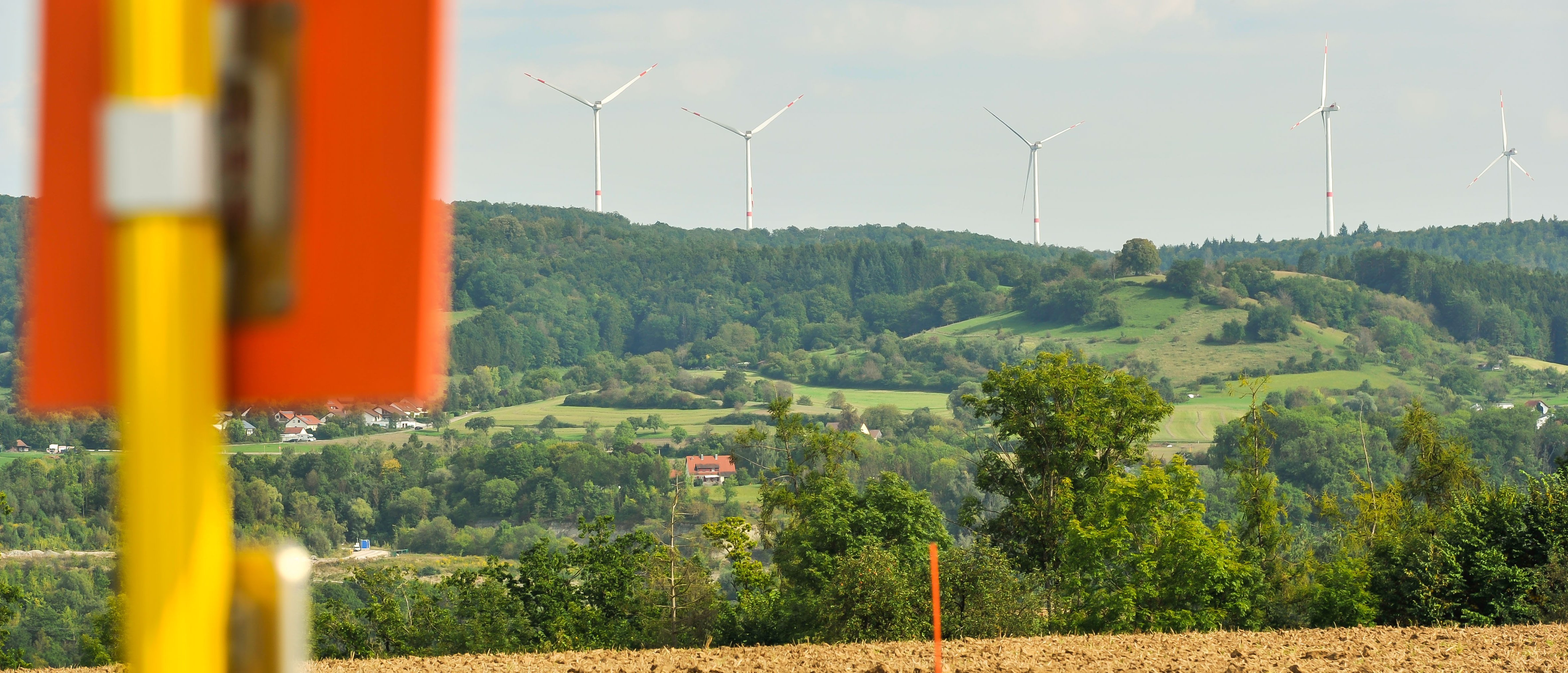Together, we are working
on the energy networks of tomorrow
To ensure that industry, trade and households continue to be reliably supplied with energy in the future, transmission systems operators and regulated operators of hydrogen transport networks draw up a joint national network development plan (NDP) for gas and hydrogen every two years. This is a legal requirement under the Energy Industry Act. All measures that are needed over the next ten to fifteen years to ensure a secure supply in Germany are set out in this NDP.
Together with the other German transmission system operators and the regulated operators of hydrogen network networks, we are actively shaping the future of energy. We are working jointly on integrated network development planning for gas and hydrogen, which creates the roadmap for the required repurposing of our energy infrastructure. Since 2024, nationwide planning has included development of an efficient hydrogen infrastructure in addition to the necessary repurposing and expansion of the natural gas network.
The Coordination Centre for Integrated Network Development Planning Gas and Hydrogen (KO.NEP) steers this nationwide development planning process. The Federal Network Agency (BNetzA) confirms the repurposing and expansion planning and then commissions the network operators with a binding mandate for its implementation.
Work has currently begun on the first integrated NDP Gas and Hydrogen. Binding confirmation should be granted by the BNetzA in 2026.
The scenario framework forms the basis for planning our energy system. It describes the probable developments of the German energy system on the path to climate neutrality. This comprises at least three scenarios for the next 10 to 15 years and three more for the target year of climate neutrality in 2045.
The scenarios are based on a range of probable developments in line with the German government's climate and energy policy goals. Reports from market participants such as supply and industrial companies to the gas transmission system operators on their future requirements for gas and hydrogen are also included in the scenarios.
A total of four different scenarios are considered. Three of them are based on long-term scenarios of the Federal Ministry of Economics and Climate Protection (BMWK) and depict different development paths: extensive electrification, intensive use of hydrogen and lower energy savings than targeted. The fourth scenario is based on the demand reported by market participants.
The BNetzA published the scenario framework in September 2024 and gave the public and market participants the opportunity to comment. The results of this public participation were examined by the BNetzA and taken into account when approving the scenario framework in April 2025.
Based on the Scenario Framework, experts at the transmission system operators and regulated operators of hydrogen transport networks calculate the demand for development works in the coming years. The outcome of their work is the initial draft NDP, which includes all effective measures required to strengthen, optimise and expand the natural gas and hydrogen transport networks. An integral part of this draft is also a report on the implementation status of the measures set out in the currently applicable NDP, already confirmed by the BNetzA. Should there be delays in their implementation, the project owners must explain the reasons.
KO.NEP publishes the draft and holds a public consultation.
On completion of the consultation process, KO.NEP submits the updated draft to the Federal Network Agency. Finally, the regulatory authority gives the public and market participants such as utility and industrial companies the opportunity to comment. The NDP should be confirmed by the Federal Network Agency in 2026. The network operators are then bindingly obliged to implement the development measures.
From 2026, the KO.NEP publishes all NDPs.
NDPs up to and including NDP Gas 2022-2032 are available in the archive on the FNB Gas website.
Gas secures the supply of heat and power
Reduce emissions until Germany is climate neutral in the year 2045 – this is the goal set by the federal government. Baden-Württemberg aims to be climate neutral by 2040 already, which is why we are making our pipeline network future-ready and are preparing to transport hydrogen. Meanwhile, natural gas will serve as a bridging technology and facilitate the phase-out of coal-fired power generation. Natural gas is deployed in gas-fired power plants to generate electricity, this being more efficient than coal and especially important in times of little wind or sunshine when PV systems and wind turbines supply low levels of electricity to the transmission grid. All repurposing and construction measures carried out by terranets bw are "H2-ready" because, in the long term, the company will only transport hydrogen.
All measures required for a secure supply of natural gas until 2032 are published in the NDP gas database:
Discover more about the network development projects carried out by terranets bw
Climate-friendly hydrogen supply
Together with the other German transmission system operators and the regulated operators of hydrogen transport networks, terranets is driving the development of a hydrogen infrastructure to ensure that the energy transition can succeed. The core hydrogen network that is to be set up step by step by 2032 marks an important first step in developing a hydrogen supply system.
Discover more about the core hydrogen network
Baden-Württemberg´s efficient connection is secured via the South German gas pipeline, SEL. Additional pipelines are planned in the core network to supply Eastern Alb, Upper Swabia, the eastern Lake Constance area, the Upper Rhine, Breisgau and the Mannheim/ Karlsruhe region.
Further development will follow as part of the integrated network development planning for gas and hydrogen.
Partnering for the future of energy: KO.NEP and FNB Gas
In a nationwide cooperation with all transmission system operators as well as regulated operators of hydrogen transport networks in Germany, we are committed to developing a hydrogen infrastructure. The Coordination Centre for Integrated Network Development Planning Gas and Hydrogen (KO.NEP) is steering this collaboration of transmission system operators and regulated operators of hydrogen transport networks. Within the framework of network development, KO.NEP is also responsible for publications.FNB Gas e.V. is the association that brings together all German transmission system operators. It coordinates professional dialogue between its members and is a contact point for both politicians and the public.
Questions and answers
Why is it so important to develop the gas transmission network?
Why is it so important to develop the gas transmission network?
To ensure that the energy transition can succeed and to guarantee a secure supply of energy after the nuclear phase-out and during the ongoing shut-down of coal-fire power generation, an efficient gas transmission system is needed. This is important for local municipal suppliers, for industry and trade and for system stability in the power grid, which must be safeguarded by modern gas-fired power plants. terranets bw is responsible for operating and developing its gas transmission system. In accordance with Sections 1 and 11 Energy Industry Act (EnWG), terranets bw is obliged to operate a secure, reliable and efficient gas transmission network and to develop its grid in line with requirements and the continually increasing demand for gas shipping capacities. In the long term, terranets bw will only transport hydrogen, which is why all our repurposing and construction measures are "H2-ready".
Who decides on the development of the gas transmission system?
Who decides on the development of the gas transmission system?
In Germany, nationwide coordination of development requirements is part of the Network Development Plan for Gas and Hydrogen. This plan sets out all measures that are needed in the next ten to fifteen years to reliably and safely operate the pipeline system – to optimise, strengthen and develop the grid in line with demand as well as to guarantee security of supply. These measures are reviewed by the Federal Network Agency and – following consultation with the public – confirmed. terranets bw subsequently has a binding mandate to implement the planned measures.
Who plans and develops the gas transmission system in Germany?
Who plans and develops the gas transmission system in Germany?
The German gas transmission system operators are responsible for planning and developing the supra-regional gas network. All development measures are reviewed by the Federal Network Agency and confirmed following public consultation.
Why do we need natural gas? Isn´t our goal to achieve climate neutrality as soon as possible?
Why do we need natural gas? Isn´t our goal to achieve climate neutrality as soon as possible?
Using natural gas is associated with lower emissions than other fossil fuels such as lignite or anthracite. Natural gas guarantees an efficient and reliable supply of energy during the transformation of our energy system. As a fuel, it is an important companion on our path to a complete supply of renewable energies. It stabilises the energy supply in times of little wind and sunshine. In the future, natural gas will be used in power plants to generate electricity – thus enabling the fast phase-out of coal energy.
What is the task of the Coordination Centre for Integrated Network Development Planning for Gas and Hydrogen (KO.NEP)?
What is the task of the Coordination Centre for Integrated Network Development Planning for Gas and Hydrogen (KO.NEP)?
KO.NEP´s role is to coordinate the drawing up of the Scenario Framework and Network Development Plans for Gas and Hydrogen by the responsible gas transmission system operators and to submit these plans to the Federal Network Agency every two years. The centre acts as a central contact point for authorities and market participants regarding issues relating to network development planning in the gas and hydrogen sectors. It is also responsible for setting up and operating the legally required databases for the gas and hydrogen network.
How are comments submitted by market participants such as utility and industrial companies and the public taken into consideration in network development planning?
How are comments submitted by market participants such as utility and industrial companies and the public taken into consideration in network development planning?
Market participants such as utility and industrial companies and the public can contribute their comments to the network development process within the scope of public consultations. The draft Scenario Framework is published by the Federal Network Agency (BNetzA). This publication gives stakeholders the opportunity to comment. The Scenario Framework is subsequently approved by the BnetzA, taking into account the results of the public participation process.
In the same way, consultation takes place on the Network Development Plan (NDP): The competent Coordination Centre (KO.NEP) publishes the draft NDP and gives the public as well as market participants such as utility and industrial companies the opportunity to comment. KO.NEP then submits the consulted and revised NDP draft to the BNetzA for confirmation.

![[Translate to English:] Unser Telekommunikationsnetz](/fileadmin/_processed_/4/8/csm_Telekommunikation_Kabel_Unschaerfe_blau_gelb_terranets-bw_e68fc06931.jpg)

![[Translate to English:] terranets bw / Für Kunden / Telekommunikation](/fileadmin/_processed_/6/7/csm_231222_Mitarbeitender_am_Schaltschrank_6_kl_0cca01e205.jpg)
![[Translate to English:] Kundenportal ConnectCapacity](/fileadmin/_processed_/c/3/csm_231222_Mitarbeitende_der_IT_Computer_8_kl_3266995988.jpg)

![[Translate to English:] terranets bw Unternehmen Visionen](/fileadmin/user_upload/Content/Unternehmen/Visionen/terranets_bw_Mitarbeitende_Brainstorming_1.jpg)
![[Translate to English:] terranets bw: Wasserstoff für Baden-Württemberg](/fileadmin/_processed_/2/3/csm_Wasserstoff_Inititative_Logo_Energiezukunft_8904d74570.jpg)
![[Translate to English:] terranets bw: Sehen Sie sich unsere Stellenangebote an!](/fileadmin/_processed_/c/0/csm_240507_Mitarbeitende_im_Gespraech_3_bcf21346f8.jpg)
![[Translate to English:] Arbeiten bei der terranets bw](/fileadmin/user_upload/Content/Karriere/terranets_bw_Karriere_Arbeiten-bei-Terranets_3zu2.jpg)
![[Translate to English:] Die Standort der terranets bw](/fileadmin/user_upload/Content/Karriere/terranets_bw_Was-wir-tun_Scharenstetten_3zu2.jpg)
![[Translate to English:] Studium, Ausbildung oder ein Praktikum bei der terranets bw](/fileadmin/_processed_/2/f/csm_TERRANETS_Bild_Fuer-Praktikanten-und-Auszubildende_Fuer-Schuelerinnen_3zu2_360e1e705d.jpg)
![[Translate to English:] terranets bw: Netzausbauprojekte](/fileadmin/_processed_/4/0/csm_Absenken_Rohrstrang__3__67f60716af.jpg)

![[Translate to English:] terranets bw Mediathek](/fileadmin/_processed_/2/2/csm_terranetsbw_Flugtafel_3_c6937e947f.jpg)


![[Translate to English:] Gas sichert die Versorgung mit Wärme und Strom](/fileadmin/_processed_/f/a/csm_210908_Schilderpfahl_Strommast_94b4ad53d1.jpg)
![[Translate to English:] Klimafreundlich versorgt mit Wasserstoff](/fileadmin/_processed_/f/b/csm_Wasserstoff_Energiezukunft_Logo_4ba66764bc.jpg)
![[Translate to English:] Logo Koordinierungsstelle für die integrierte Netzentwicklungsplanung Gas und Wasserstoff (KO.NEP)](/fileadmin/user_upload/Content/Unsere-Netze/Netzentwicklungsplan/terranets_bw_Logo_KONEP.png)
![[Translate to English:] Logo FNB Gas Die Fernleitungsnetzbetreiber](/fileadmin/user_upload/Content/Unsere-Netze/Netzentwicklungsplan/terranets_bw_Fernleitungsnetzbetreiber_Gas.png)